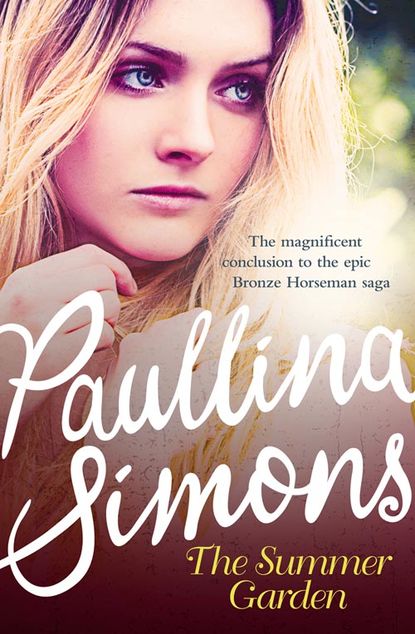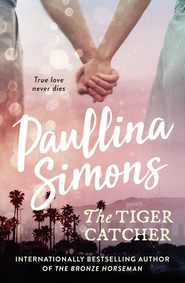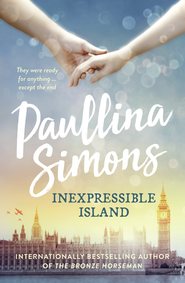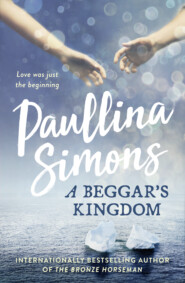По всем вопросам обращайтесь на: info@litportal.ru
(©) 2003-2025.
✖
The Summer Garden
Настройки чтения
Размер шрифта
Высота строк
Поля
“Out of the way for what?” Alexander shook his head. “I really think we can make a little money here. We’re going to wait a while, then sell it.” He paused. “But Tania, I’m confused about your motives. One minute you want to sell the land for pennies to the lowest bidder. The next you’re breathlessly talking about spring.”
Tatiana shrugged. “What can I say? I’m conflicted.” She chewed her lip. “Would you ever consider … living here?” she asked carefully.
“Never! Feel the air. Feel your face. Why, do you want to live here—” Suddenly Alexander broke off, his eyes widening.
Do you want to live in Arizona, Tatia, the land of the small spring?
He had asked this of her—in another life. “Oh, come now,” he said slowly. “You don’t—you aren’t—no, come on … Oh no!” Alexander let out an incredulous laugh. “I just got it! Just. Oh, I’m good. I’m sharp. I don’t know how we ever won the war. Tania, come on! Recall when I said it.”
“I’m recalling it as if you’re saying it to me now,” she said with crossed arms.
“Well, then surely you know I meant it metaphorically. As in, would you like to live somewhere that’s warm. I didn’t actually mean here!”
“No?” Her no was so quiet.
“Of course no! Is that why you bought the land?”
When Tatiana didn’t reply, Alexander became speechless. There were so many baffling things he didn’t understand about her, he simply didn’t know where to look for answers. “We’re in the middle of an iced over, blockaded, heatless Leningrad,” he said. “The Germans are denying you even the unleavened cardboard and glue that you’re eating instead of bread. I briefly mention a vague warm place I barely remember that I had once driven through with my parents. Damn, I should’ve said Miami. Would you have then bought land there?”
“Yes.”
“You’re not serious. Anthony, come here, stop chasing rattlesnakes. Do you like it here?”
“Dad, this is the funnest place in the whole world.”
“What about this cholla? Is that fun?”
“So fun! Ask Mommy. She says it has evil spirits. She calls it the cactus from hell. Tell him, Mama—it’s worse than war.” He ran off with joy.
“Yes,” said Tatiana, “stay away from the cholla, Alexander.”
He furrowed his brow. “I think the heat has done something to both of you. Tania, inland, we’re so far inland, the air doesn’t even carry water on the wind!”
“I know.” She took a hot gulp of air.
They disengaged, spread out, thinking their separate thoughts. Anthony was picking dried-out fruit off the prickly pear cactus. Tatiana was pulling the dried-out red flowers off the cattail-like ocotillo. And Alexander was smoking and looking at the land and the mountain and the valley below. The sun set peacefully, and as the light of the sun changed once more, the rock hills transformed into a blaze. They put down a blanket, sat shoulder to shoulder, knee to knee and watched the sunset while Anthony played.
Alexander thought Tatiana had been thinking of how to convince him to sell the land or not to sell the land, but what she said to him was more perplexing. She said: “Shura, tell me, in Lazarevo, when you were going to go back to the front … we used to look at the Ural Mountains like this. Tell me, why didn’t you just stay?”
Alexander was taken aback. “What do you mean, stay?”
“You know.” She paused. “Why didn’t you just … not go back?”
“Not go back to my command post? You mean—desert?”
She nodded. “Why didn’t we just run—into the Urals? You could have built us an izba, we could’ve settled there, in the forest, found some precious stones, bartered them, grown things to eat. They would’ve never found us.”
Alexander shook his head, his hands opening in deep question. “Tatiana, what in the name of God,” he said, “are you thinking? What in the world is going through your mind, and more important, why?”
“It’s not a rhetorical question. I would like an answer.”
“An answer to what? Why didn’t I desert the Red Army? For one, my commander, Colonel Stepanov, that nice man—remember him, who let me have twenty-nine Lazarevo days with you—would’ve gone to the firing squad for having a deserter in his brigade. So would my major, and all the lieutenants and sergeants I served with. And you and I would’ve been on the run for the rest of our short, doomed lives. On the run! And they would’ve found us, like they find everybody. Remember I told you about Germanovsky? They found him in Belgium after the war, and he’d never even set foot in the Soviet Union. He was born in France. His father was a diplomat. Germanovsky was given ten years hard labor for not returning when he turned eighteen—fourteen years earlier! That would have been us. Except they would have found us in five minutes, the first time we tried to barter some of that precious Ural malachite to match your eyes. It would’ve been over like lightning, and the five extra minutes we would have had would’ve been spent with one eye looking over our shoulder. In other words, prison. That’s what you wanted—?”
Without letting him finish, she jumped up and walked away. What was she thinking? But at the same time, the sun was on fire, and Alexander had spent too long in dark places below ground, and so he didn’t go after her but sat and finished his cigarette, watching the desert sunset up from a hill.
When Tatiana came back to the blanket she said, “It was just a silly question.” She knocked into his shoulder. “I was musing, not serious.”
“Oh, that’s good. As opposed to what?”
“Sometimes I think crazy thoughts, that’s all.”
“The crazy part, absolutely. What thoughts?” Alexander paused. “How it all might’ve been different?”
“Something like that,” she said staring into space. Then she took his hand. “Sunset’s nice, isn’t it?”
“Sunset’s nice,” said Alexander.
She leaned against him. “Shura, this all might look burned and brown now, but in the spring,” she said in a breathy voice, “the Sonoran Desert is reborn! With pale blue delphinium, white thistle, flame poppy, red ocotillo, blue and yellow palo verdes, and scarlet bugle. We can even plant some lilac sand verbena. You know how much you like lilac,” she cooed. “And prickly pears and pincushion cacti grow here …”
Alexander squeezed her little hand and raised his eyebrows. This was a much better conversation. “Babe,” he said, lowering his voice, and glancing around to make sure Ant wasn’t nearby, “in my lewd soldier’s world pincushion means only one thing, and you can be sure it’s not cacti.”
Tatiana tutted in mock shock, pulled to get away, but Alexander grabbed her, pulled her down onto her back on the blanket, bent over her, and said huskily, “Tell me, is there pussy willow in the desert, too?” watching her flush red, and forgetting all about flame poppy and scarlet bugle.
He let her shove him, scramble up, and run from him. He chased her, he chased Anthony.
He is making a silent movie with her, and she is moving in broken frames, animated and choppy, to the sound of the jerking crank. Her arms do a little flapper dance from side to side; her teeth are gleaming, she is tousle-haired and sunny, she runs after Anthony, her taut hips curve and swivel, she runs back to Alexander, her bouncy breasts bob and sway; she stands in front of him, holding her hands out to him, come, come, but he is holding the shaking camera, he can’t come. Her exquisite mouth puckers, her mouth in black and white—it’s a bow, a blow, a kiss, a gift that keeps on giving—and suddenly, a broken reel. Shura! Shura! Can you hear me? she squeals, and he puts the camera down and chases her, and somewhere in the Siberian juniper he catches her. She bats her eyes that squint upward catlike when she laughs, she parts her mouth and pleads falsely and merrily for release. Someday perhaps they will look back at the movies of this time, movies that will have captured the illusion, the fleeting joy that is their youth. Just as Soviet cameras once captured the snapshots of another her, another him, on the stone steps of wedding churches or near their long lost brothers.
Covered in sweat and sand, Alexander and the boy took off their shirts and fell down on the nylon tent covering while Tatiana dipped a towel into a bucket of water and cooled their chests and faces. Once he had only a soaked towel on his face as he dreamed of her. Now he had a soaked towel and her. He reached out, like a bear—and pawed her. She is here.
“I want the Biscayne Bay now …” croaked Alexander. “The Gulf of Mexico now.”
He got darkness now, and a sleeping son. The stars were all out, even Jupiter. She came out to him after putting Anthony to bed inside the camper, and he was sitting in a plastic folding chair, smoking. Another chair stood by his side.
She started to cry.
“Oh, no,” he said, covering his face.
Patting his shoulder, her voice low, she said with a sniffle, “Thank you.” And then climbed into his lap and held his head to her.
“You understand nothing,” he said, rubbing his cropped hair into her neck. “The lap was always so much better.”
Alexander had pitched a tent for them and built a small careful fire surrounded by stones right in front of it. “You know how I lit the kindling?” he said. “I held it to a rock for five seconds.”
“All righty, now,” she said. “Enough of that.”
They sat facing west, wrapped around each other, looking out onto the dark valley.
“When you weren’t with me,” said Tatiana, “and when I thought you were never going to be with me again, I bought this land on top of the hill. For you. Because of the things you taught me. Just like you always taught me. To be on high ground.”











